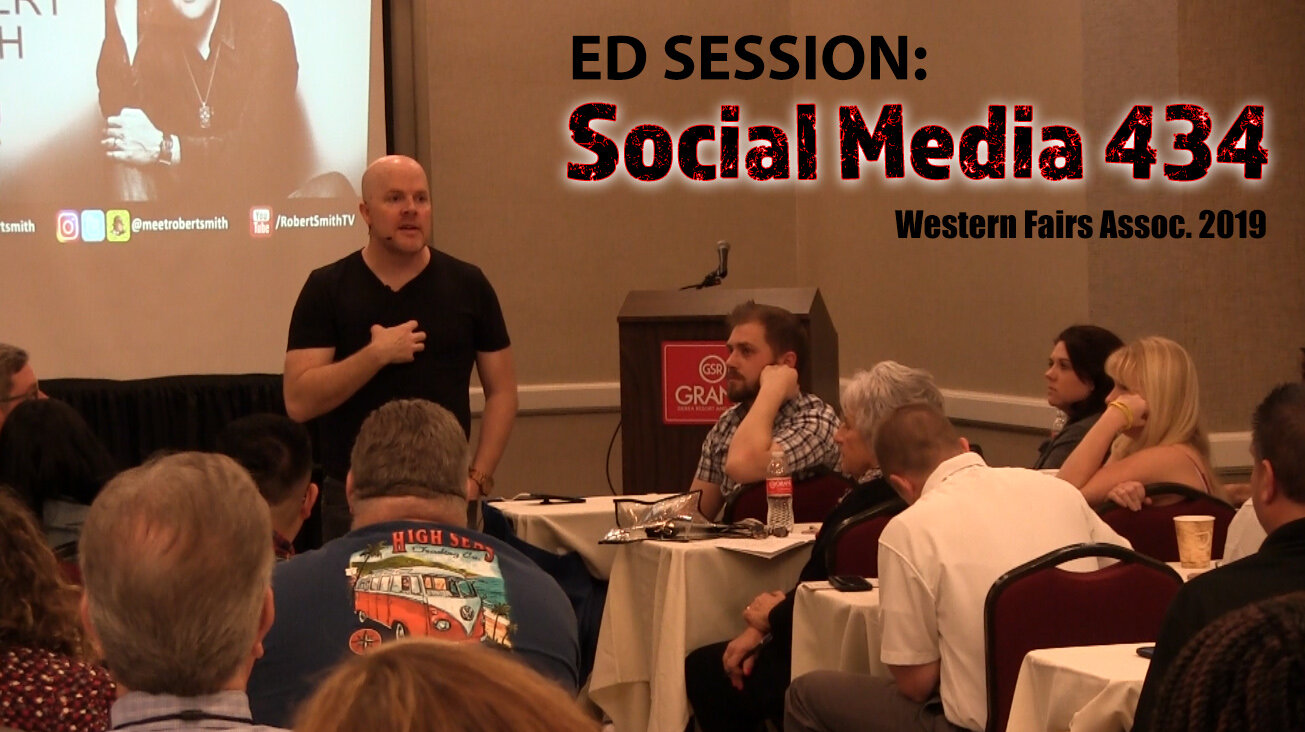Originally published November 9, 2018.
Follower Counts Are Irrelevant.
Here’s 3 Reasons Why.
If you take a look around social media, it won’t take you long to realize that people have a thing for followers. The common thought tends to be the more followers you have, the “better/cooler/more in-demand” you must be. Follower counts have become the modern equivalent of having everyone want you to sign their high school yearbook back in the day. You must be so popular, right?
Nope. Not right.
Here’s my opinion on follower counts. They’re irrelevant. Here’s why.
Reason #1: Purchased Followers
That common thought I mentioned earlier that somehow lots of followers must mean you’re somehow more important is a gigantic misconception.
For starters, followers can be bought.
If you’re not deep into the social media ecosphere you may not even realize this is a thing. Social media users can go to certain companies and pay to get more followers on their account. Literally, they put their credit card in, and a computer program begins generating followers for that account. You might spend $100 for 2,500 followers. Or $500 for 20,000 followers.
Do the follower counts actually increase? In some case, yes, absolutely.
However, in most cases those are bot accounts. They’re not real. They’re just a computer generated fake account following that person.
Why do people buy fake followers? Super easy answer. They need fake followers to build up their fake self-esteem. It’s just true. If you’re confident in who you are, then it just doesn’t matter how many followers you have.
So how do you know if a person is buying fake followers? It’s not always easy. There’s apps and websites that claim to be able to indicate how many real vs. fake followers a user has. Accuracy can vary and in some cases only lead you to having to give up personal information to get the results. Not a great idea
One way I’ve found that’s pretty accurate is simply looking at the number of followers against the amount of engagement they have. By default, if you’ve got tens of thousands of followers, you should be getting some level of organic engagement, between .5% to 3%.
So someone with 25,000 followers should be getting at least several hundred likes and comments.
But take a look at some accounts on Instagram that have 27k, 45k, or even 100k followers. Yet they get 18 likes and 1 comment. You’ve just found someone who has bought their followers.
Reason #2: Your Goals Aren’t the Same as Someone Else’s Goals
This is a big one for me. Equating follower counts to some level of value or quality misses the very real possibility that the goals of one brand or person are different than the goals of another brand or person.
Here’s a couple of quick examples.
If you have Facebook then you likely have heard of these two companies: Purple Mattress and Squatty Potty. Each start up put out videos that went insanely viral.
Purple Mattress released a video with a character, “Goldilocks the Bed Expert,” dropping 4 raw eggs onto their Purple Mattress. It garnered 138 million views and shot Purple Mattress to the forefront of the direct-to-consumer mattress industry.
Squatty Potty released a video with a unicorn character dropping, well, you’ll have to watch the video. The video generated more than 140 million views and counting.
My point?
The company that created those videos has just 8,200 followers.
Your goals aren’t the same as someone else’s goals. So quit comparing your follower counts to someone else’s follower counts.
Reason #3: The Facebook Ad Product
Listen, if you’re a B2C business, having a high follower count in order to sell your watch, or your camera, or whatever your product is, intuitively seems like it would be helpful.
Or, if you’re like my business, and you provide a service to another business, so you deal in B2B, you might also think enormous follower counts are helpful.
But the Facebook ad product wipes away any advantage. Particularly, if we’re talking about entertainment service providers in the fair industry where our business serves.
“Follower counts are a nonsense vanity metric that says very little about the quality of a brand or product. -Robert Smith
As performers, we tend to log tens of thousands of miles traveling to fairs across the country. In one year I’ve picked up followers from southern California to Maryland. Other acts do the same.
Let’s take an example of two acts. One act has 20,000 followers while the other act has 1,000 followers.
The act with 20,000 followers gets booked at a fair in Minnesota. They put out a video on their Facebook page which generates an organic reach of 1,000 engagements. And that’s a generous estimate.
That’s good news for that fair, right? 1,000 people engaging with likes, comments and shares about an act coming to your fair.
Except where are those followers located? Remember as acts we generate followers from a variety of locations around America and Canada. If your fair is in Minnesota and the act has performed there before, maybe 25% of those engagements are in your area. If this is the acts first time to Minnesota, forget it. Few if any of those engagements will be from your fair’s area.
To recap: The act has 20,000 followers. They publish a post which organically generates 1,000 engagements of which 250 or less will be in your area.
Now let’s take a look at the act with 1,000 followers.
Understanding Facebook’s ad product, they deploy an “unpublished” Facebook post and target it to a given demographic within 25 miles of your fair. They get their message in front of 10,000 people, who are actually potential customers for that fair, for about $90 dollars.
The ad generates 1,000 engagements (likes, comments and shares). Because of Facebook’s targeting capabilities, all of those 1,000 engagements are in your fair’s immediate area.
See how that worked? One act gets in front of few if any of the fair’s potential customers. The other gets in front of 10,000 of the fair’s potential customers.
Don’t Be Fooled by Follower Counts.Follower counts are a nonsense vanity metric that says very little about the quality of a brand or product. If they do say something, then certainly there should be some graduated matrix of follower success.
What’s my value if I have 1 million plus followers? What about 500,000? Is my product any better or worse if I only have 100,000? What about 25,000? 1,000? 500?
No. Follower counts are irrelevant and I just gave you three good reasons why.
I wish you all nothing but happiness.





